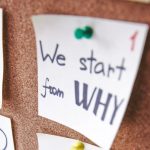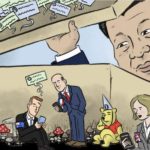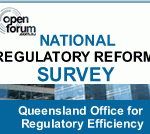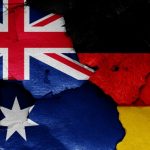Nature cure

If there’s one thing most Melbournians have discovered this year, it’s to fully appreciate taking deep breaths of clean air. Just twelve months ago, the simple act of walking through a park, pausing to smell a flower or sitting awhile on a patch of grass was unremarkable.
However, as Victoria endured devastating summer bushfires our suburbs were shrouded by a smoke haze which made the air hazardous.
We sheltered indoors if we could and those of us working in health noted with concern a rise in illness and deaths associated with particulate pollution- asthma, heart disease and stroke. Those venturing out into the smoke haze in especially bad areas wore N95 face masks and the images were striking; it was not something we Australians had done before.
Fast forward to spring and we have another reason to be wearing a mask, the COVID-19 pandemic. Now most of us have a selection to choose from, perhaps a cloth mask for a walk in the park and a surgical or N95 for mask for work if you are a front-line worker.
Those employed in face- to- face health settings may also need to wear a face shield, scrubs and a gown. These layers of protection are uncomfortable when worn for hours on end and it is a great relief to peel them off and feel the breeze on your skin at the end of the day.
The bushfires and pandemic are linked in that they are symptoms of humanity’s disruption of natural systems.
Climate change, (from increasing greenhouse gas emissions predominantly from fossil fuels like coal and gas), has led to bushfires becoming more intense, frequent and prolonged. Whilst the destruction of habitat, the illegal wildlife trade and resultant unnatural coming together of humans and exotic species has facilitated the development of new zoonotic infections, like COVID-19.
Both climate change and the current pandemic are major public health threats, harming billions of people and causing an escalating death toll. We must act urgently to combat the acute health threats whilst simultaneously taking steps to prevent future pandemics and climate related extreme weather events. Protecting the natural environment and restoring those ecosystems already damaged is part of the necessary response.
So, it is deeply disappointing to learn about the dire state of biodiversity outlined in the recent Living Planet report from the World Wide Fund For Nature. It states that global wildlife populations have dropped by two-thirds in 50 years and that Australia is one of the few places on Earth where areas of intact wilderness remain.
Yet, despite our unique wildlife Australia has the worst mammal extinction rate in the world and there is the very real risk of the koala becoming extinct in New South Wales in the next decade.
With the review of the nation’s key environmental law, the Environmental Protection and Biodiversity Conservation (EPBC) Act, the Morrison government has an opportunity to avert the ongoing demise our precious living natural resources.
Disappointingly, it has prioritised fossil fuel development instead, and recently used its numbers in the lower house to gag debate on its plans to weaken environmental protections. The government is not even waiting for the finalisation of its own review of the Act, such is the push to pander to big business and the fossil fuel lobby.
Doctors outlined the links between biodiversity and health in detail in a submission to the EPBC Act review, and along with thousands of other health professionals, including Professor Peter Doherty, implored Minister Ley to consider human health in the context of these nature laws. Yet health is only mentioned once in the Review’s interim report.
Australians are working hard to combat this pandemic, socially distancing and wearing masks when needed. We want a summer where we can be with our loved ones, breathing fresh air, safe in the knowledge politicians are acting in the interests of us all, now and into the future.
We want a government that takes the health of the natural environment seriously and understands the wellbeing of all of us depend upon it.
Dr Dimity Williams is a Melbourne General Practitioner and the Biodiversity Convenor for Doctors for the Environment Australia. She is passionate about the natural world and campaigns for the protection of our environment.















